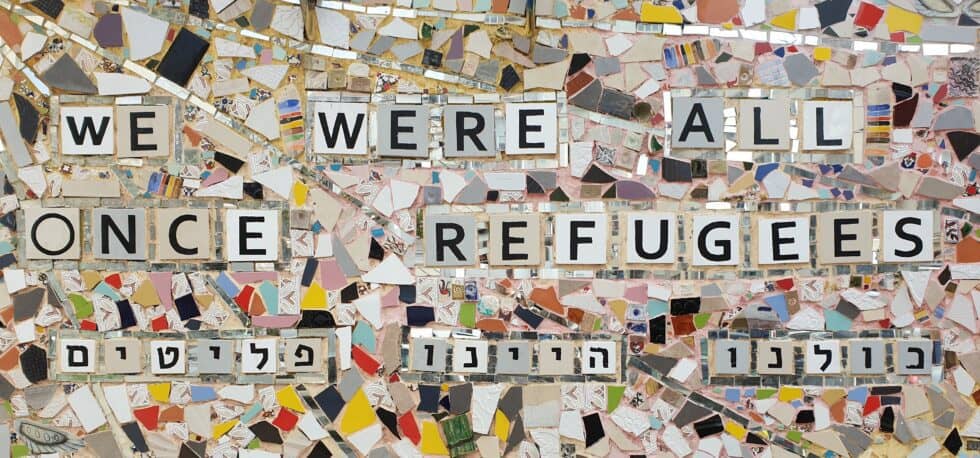What is the future of frozen embryos?
Dr. Hagai Boas | 20.02.2022 | Photo: Unsplash

Should undemanded frozen embryos still be considered part of the family unit, or may they be considered part of science? It is a population that is constantly growing, although it takes up little space, and its fate raises personal and ethical questions. A recently published study by Dr. Roy Gilbar and Dr. Sivan Tamir asked about the future of the frozen embryos of couples undergoing fertility preservation processes, with surprising results.
Israel is one of the world's leading countries in fertility treatments: the state subsidizes fertility treatments at a staggering rate, and hundreds of thousands of Israeli couples, from all sectors and all social classes, have realized their wish to become parents by way of the advanced technologies of fertility medicine. As a whole, Israel is a pronatalist state, one that encourages reproduction. The common use of fertility technology is only one aspect of that policy, but it is the most obvious one.
Israeli society's full embrace of those technologies leads to several phenomena that are almost completely unique: bringing a child into the world from the seed of a deceased man, community genetic counseling, genetic matchmaking (“Dor Yesharim”), and more. But there is one aspect that is hidden from public view: in Israel there are hundreds of thousands of frozen embryos in liquid nitrogen vials. Some estimate the number of such embryos between 700-800,000, equal to some 8% of the population of Israel.
Frozen embryos: a portrait
What are frozen embryos? In every artificial fertilization process a number of ovules are extracted from the woman's body. These eggs are fertilized in different ways, and once the fertilized egg begins to divide and grow, the first stage towards pregnancy can be counted as a success: the potential for life has been created. But not all fertilized eggs are returned to the womb – the rest are kept frozen for another round, in case the frozen egg does not take hold and further attempts are necessary. The frozen fertilized eggs are what we call “frozen embryos.”
But what exactly are those frozen embryos? Are they frozen living beings? Their process of division and growth was stopped and frozen artificially. At this stage, perhaps they are only the potential of life? They are not merely eggs, such as in the process of freezing eggs for future fertility processes. They already carry the common genetic load from the encounter between the sperm and the egg; they are the potential brothers and sisters of the fetuses growing in the mother's belly. If the fertility treatments end with success and the family planning is complete, what should be done with the fetuses that remain frozen in the fertility clinics?
The provision is that the IVF unit must preserve the frozen embryo for a period of no longer than five years. That period can be extended by another five years if such a request was received from the patients and approved by a physician. At the beginning of treatment, the couples must decide on their preferred option: freezing the embryos for five years; thawing them (which means destroying the surplus embryos); or donating them to research. After five years, the units must contact the patients again and ask what they want to do with the frozen embryos. In many cases no such contact is made, and the population of frozen embryos continues to grow.
Destruction, donation to research, or perhaps donation for the purpose of procreation?
Dr. Roy Gilbar and Dr. Sivan Tamir embarked on a study on behalf of the Van Leer Jerusalem Institute to find out what couples undergoing treatment at IVF units, and those who were treated in the past, think should be done with the frozen embryos created in the course of the process. They visited three IVF units at hospitals in Hadera, Jerusalem and Afula, and presented hundreds of couples with a series of questions about their preferences as to the frozen embryos they have or may have in the future.
Among other things, they presented the respondents with the option of donating embryos for future procreation. That is an option that exists in Canada, the UK and certain places in the US. Unlike a sperm or egg donation, here the donation is of an actual potential brother or sister who carries the couple's genetic matter. 62% of the respondents replied they would agree to donating embryos for procreation.
This is the first study of its kind in the Israeli population, and points to an option that does not currently exist in the law – donating embryos for procreation. This option is surprising and raises an important question: is it realistic? Could the donation of embryos for procreation become possible in Israel? The answers should be arrived at through a public discussion, one whose time has come.
Read the study “Destruction, donation to research, or donation for procreation? Positions of male and female patients about surplus embryos from IVF treatment in Israel." The study is part of the the Van Leer Jerusalem Institute’s Solidarity and Healthcare project, led by Dr. Hagai Boas.
Watch the lectures “Surplus Frozen Pre-Embryos in IVF Units in Israel.”




